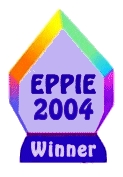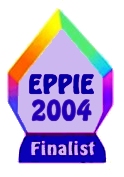Speculative Fiction
Information and links to speculative fiction resources supplied by Rick Sutcliffe's Arjay Books.
Speculative fiction (SF) is a literature of the imagination. It posits the context of a history, a technology, a culture, a world, or an entire universe different from ours, then explores typical literary themes such as choices, conflicts, and relationships in that context. The setting may be an alternate past or present, a hypothetical future, or an "other" place.
Speculative fiction includes fantasy, alternate history, science fantasy, and science fiction. In the latter two, science and technology play a significant role in the plot development.
Science Fiction
For a story to qualify as "Science" Fiction in any sense, there has to be a substantial science or technology hook for the plot--one that is feasible or at least possible given what we know about experimental science and/or technology today. To put it succinctly, science (preferably) and/or technology ought to be major characters, ones without which the there is essentially no story to be told. The plot may take place against a science/technology background that enables some plot elements, or it may involve an interaction with the science and technology. The latter may be of the "what if" variety, the "if we continue in this direction" variety, or, in the case of Rick Sutcliffe's fiction, centre on the interaction between social and science/technology issues. It can preach to some extent (much fiction does) but of course it ought to be interesting and entertaining too.
Although it is true that any sufficiently advanced technology is indistinguishable from magic, science fiction should not make too-heavy demands on the reader to suspend disbelief with respect to these aspects of the story. (It probably should not with respect to the plot and character motivations either, but that is a separate issue.)
Soft vs. Hard SF
Depending on the degree to which science and technology dominate the plot, one may employ the terms "hard" or "soft" science fiction. In hard science fiction, science and technology are integral to the plot to the point of being the main protagonists. So-called "space opera" is one sub-genre of the harder SF style. Some science fiction authors spend much of their space waxing eloquent on the details of their supposed inventions.
Softer SF often still integrates science and technology with the story, but has fewer lectures on them, concentrating more on plot, characterization, and ideas. The science and technology are presented in terms of their effects on people, interpersonal relationships, and all aspects of society. The "what if" becomes less whizz-bang, more focused on human effects. Science fiction comes in all firmnesses between hard and soft.
Fantasy Speculative Fiction
Science fantasy may have elements of science and technology, but the level of required suspension of disbelief is high. Fantasy speculative fiction scarcely deals with science or technology at all, indeed is often the antithesis of both, even though it is often sold on the same shelves as science fiction. Taking its cue from the prototypical Lord of the Rings, fantasy often involves mythical characters engaged in the struggle between good and evil in a world that may bear little resemblance to ours (but often borrows heavily from Tolkein's Middle Earth).
Its heroes, heroines and villains are larger than life. They fight battles vanquish evil, work magical enchantments, and solve the knottiest of problems single handedly. Larger than life, they stride through their author's pages, invincible and triumphant over the direst of enemies.
Some authors have a tendency to use too much magic in aid of their plots, which detracts from the human aspects of the story. After all, where is the struggle if you can wave a magic want and make all the bad guys disappear in a puff of smoke.
Alternate History SF
Alternate History SF posits a key decision in our history made differently, a key battle with a different outcome, then tracks what "would have happened" in that event. The result is necessarily a different world, a different society, a different culture, yet there is still a connection with ours, for alternate historians usually have a message to deliver about choices. A well worked out alternate history must include its science and technology, for it is impossible to understand a society otherwise. One could make the same comment about its religion, but alas, many writers attempt to explicate society without mentioning its religion, a task akin to building a house without a foundation. See the alternate history page for more detail.
Certain AH-SF themes have become rather shop-worn, such as Hitler winning WWII, the English winning the war of the colonies, and so on. The key to good Alternate History is that the point of departure needs to be (a) consistent with the preceding history, and (b) have a plausible subsequent history.
Marketing SF
How one thinks of the genre of a story may have little to do with where it is sold in the bookstore. Some SF is shelved and sold as "mainstream", meaning it is reviewed in the daily newspaper and widely advertised. For their part, Christian bookstores don't usually know what to do with SF. They may not sell it at all, or they may classify any speculative fiction they do carry as "futuristic".
Related Fiction
NOTE 1: Many people also include horror and related stories (vampire, time travel romance, etc.) in the speculative fiction category, but this site is primarily for science fiction, alternate history, and to a lesser extent, fantasy. Paranormal literature is perhaps best considered an entirely separate genre. Other cross-genre stories such as science fiction romance are not yet included here.
NOTE 2: Some people attempt to distinguish between "literary" science fiction and "genre" science fiction (as they do with other categories of writing). However, these labels reflect subjective personal preference more than they do the application of objective criteria, and are unlikely to be helpful in most cases. The label "literary" may mean something like: "uses language as a tool to paint word pictures in a clever or innovative manner that particularly appeals to some academics and literary critics". It may simply mean "acceptable to a particular critic or writers' clique" (politically correct). Thus the term may have something to do with snob appeal, but not say anything about storytelling quality. In this same category fall statements like: "Science fiction is not part of the canon of English literature." Really?
Rick Sutcliffe's SF in the big picture
Rick Sutcliffe's speculative fiction is medium-soft science fiction (alternate history) written from a Christian point of view. It is set among several alternate worlds linked by a medium called the timestream, and involves the characters in ethical decision making. It also includes Celtic elements, and attempts to explore all aspects of life in the alternate societies by having science/technology, religion, and romance all play important supporting roles. However, the author believes that putting floodlights and cameras in the characters' bedrooms serves no useful purpose to his plot lines. He is also impressed by neither vulgarity nor sophistication for their own sakes.
The first series, The Interregnum, takes place largely on Ortho Earth, also called Greater Hibernia, and covers the period 1941-2001, during which there was a ban on the throne and the High King's family, and a corrupt oligarchy of nobles ruled.
Volume I, The Peace, published as an electronic book, won an award nomination, was a best seller with its first publisher and received very positive reviews, particularly from Analog magazine's Tom Easton. It was republished by Writers Exchange ePublishing in December 2002.
Volume II, The Friends, is also available in electronic book form and in paper from Booksurge. It was published by Writers Exchange ePublishing in June 2003 and was named the best Science Fiction novel of the year with an EPPIE 2004 award.
Volume III, The Exile was published by Writers Exchange ePublishing in July 2003, and was an EPPIE 2004 finalist for Science Fiction. It is available in both electronic book and paper form.
Volume IV, The General, was published by Writers Exchange ePublishing in March 2006 and is available from them and their retailers in a variety of formats.
Volume V, The Nexus, was published by Writers Exchange ePublishing in April 2006 and is available from them and their retailers in a variety of formats.
Volume VI, The Builder, was published by Writers Exchange ePublishing in March 2012.
The second series, The Throne, takes place almost entirely on Ortho Earth, also called Greater Hibernia, and covers the period 1000-2001 and the kings and queens of Hibernia during that time.
Book 1, Culmanic Parts, contains a memoir of Catherine the great, first High Queen from 1014, the story of the thirteenth century culmanics who began Hibernia's scientific and technological revolution, and the first part of Amy Rea's fourteenth century story.
Book 2, Rea's Blood or Navy Girl or follows Amy Rea through to the battle of Trafalgar in 1440. Expected in November 2015
Book 3, Tara's Mother concludes the story of the war with Spain in 1441 and the peace that follows. Expected in January 2016
Book 4, The Paladin tells the story of Hibernia's throne from 1492 through 2001, concluding both series. Finished; Awaiting second poof reading.
All of Rick Sutcliffe's books can be purchased via links here and of course from the Publisher and other fine retailers in many formats..

|

|
|
The Friends
|
The Exile
|
|

